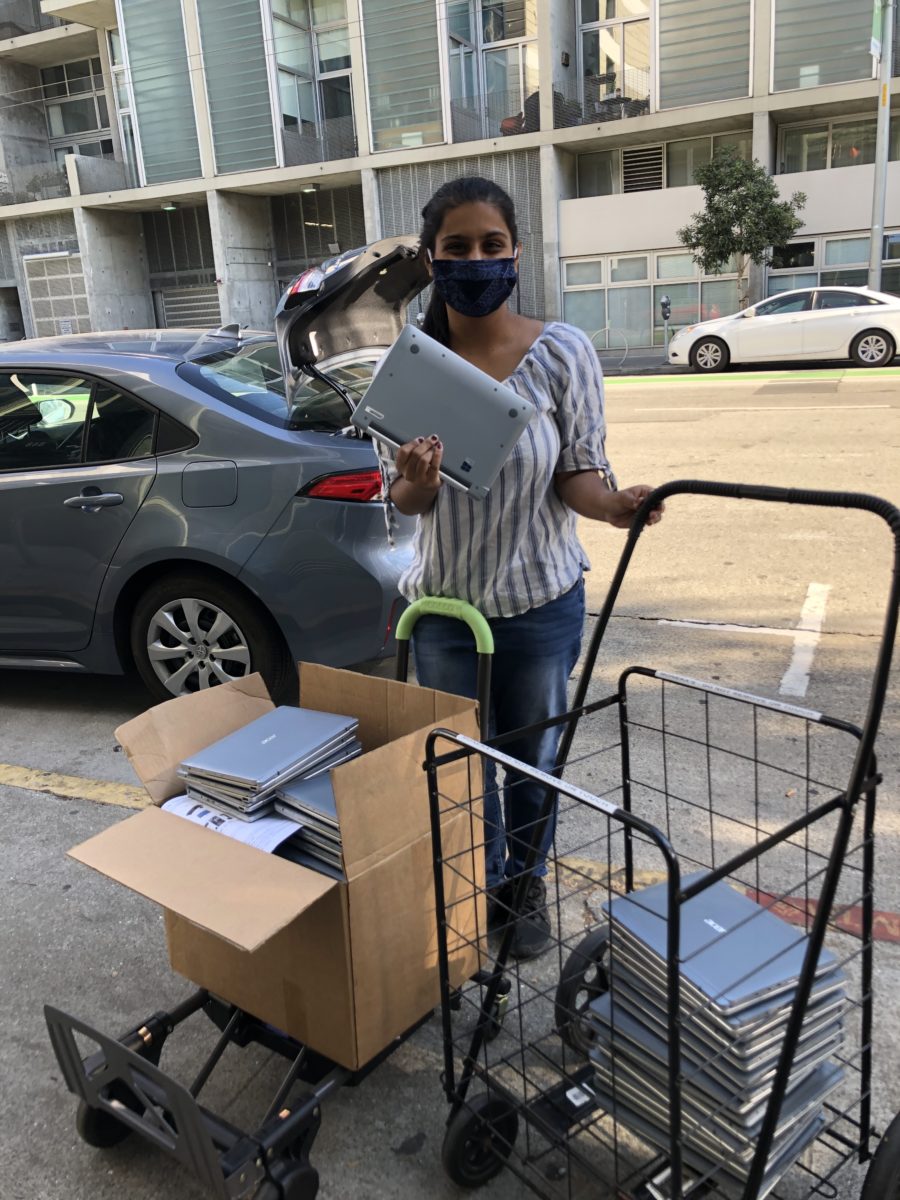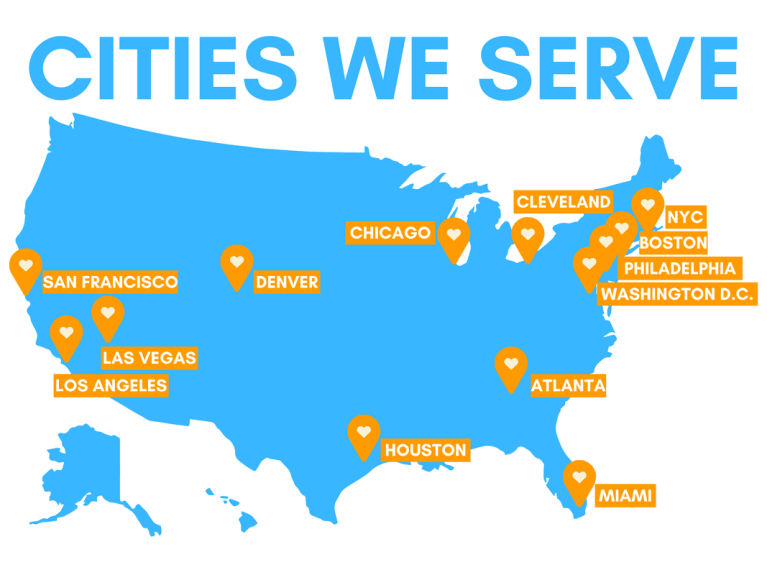As she worked at homeless shelters in Palo Alto last March, Margot Bellon ’21 could sense that the novel coronavirus, which had just arrived in the United States, would pose a myriad of challenges, especially for the women she served.
She was used to women from the shelter making the trek to Starbucks or another internet cafe to use the free WiFi. But, as restaurants and cafes closed their doors, Bellon realized that the burgeoning pandemic would be traumatic not only for the women she worked with, but also for students who similarly did not have access to digital resources — such as a computer or stable internet access — as schools all over the country were starting to shut down.
Inspired to make a change, she co-founded the nonprofit Bridging Tech with her friend Isabel Wang ’22 to provide technological aid to low-income communities and people without housing. They swiftly drafted a plan and reached out to Stanford graduates through the Stanford Alumni Network for advice and donations.
“We realized that remote learning exacerbated one of the most prevalent disparities in children’s education,” Wang said, “namely the digital divide.” The digital divide is the inequitable access to technology that leads to opportunity gaps and systemic inequity. It has a disproportionate impact on nonwhite and low-income students.
Bridging Tech’s 30-member core team has provided over 500 laptops to low-income students and students without housing in shelters across the country since April, according to Wang. The group’s operations team reaches out to new shelters, ascertains their needs and coordinates with school districts. They’ve established donation networks in cities including Los Angeles, San Francisco, Boston and Washington D.C., and have received contributions ranging from $5 to $5000 from donors in ten different countries.

Almost a year after the pandemic started, the team has expanded their operations to include tutoring and mentoring programs. They currently retain 30 tutors who partner with K-12 students in a pay-what-you-can model. With classes on subjects ranging from environmental science to aviation, the new program has raised over $8,000 to purchase laptops for unhoused students.
Tutoring program lead Noah Brazier ’21 said that the organization aims to provide educational support and mentorship. “Anybody can benefit from hearing the experiences of somebody who’s older,” he said.
According to Wang, students are paired with a “compassionate, long term, trained mentor.” The mentorship program is in the process of further development, with potential partnerships with both Google and Salesforce in the works, Bellon told The Daily.
Wang and Bellon share a longstanding concern for social inequity. Wang has worked on technology-related justice initiatives for almost 10 years, and Bellon has volunteered at homeless shelters during high school and college. She said she has seen firsthand the effects of digital inequity. Last year, she took a leave of absence and worked at a children’s home in Bolivia.
“In that home, there were 25 girls who had to share one computer,” she said. “That was really difficult for their learning; they couldn’t do homework for a long period of time.”
Bridging Tech has collaborated with other nonprofits including Ascencia, a group that provides housing and services to people who need it. “Having these laptops from Bridging Tech has made it incredibly easy for the students to just log on,” said Habon Nur, administrative assistant at Ascencia. Nur said that the group was able to deliver the laptops “quickly and efficiently.”
Wang and Bellon said they want to continue meeting the needs of low-income people and people without housing. “Many families come and go,” Wang said. “We are here to help them for as long as possible.” She said that their operations in the Bay Area, where they started Bridging Tech, “acts as a template” for future expansion.
In the future, Bridging Tech is focused on expanding outreach to rural areas that face issues with internet connectivity, according to Wang and Bellon. Only two-thirds of rural Americans report having access to broadband internet connection at home. Bellon hopes to “figure out how we can best streamline the process of getting the students online” and develop greater capacity for donations.
